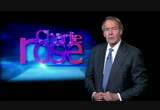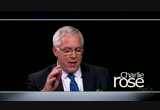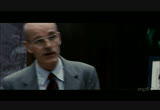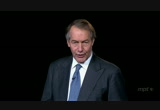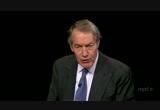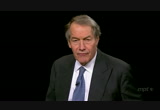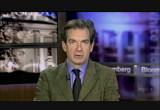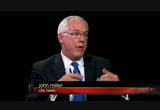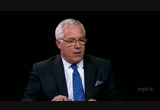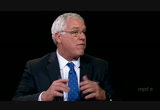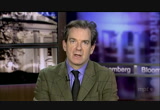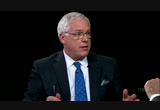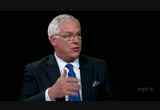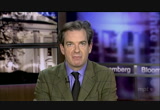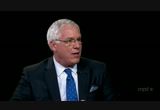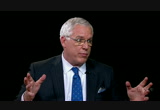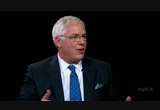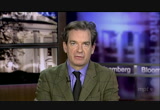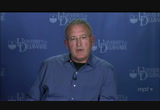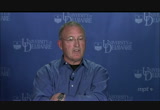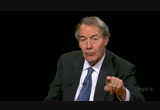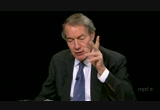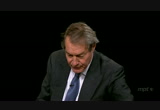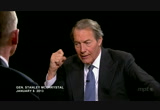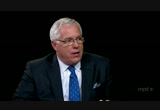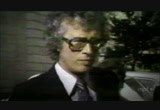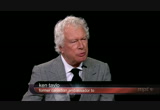tv Eyewitness 11PM News CBS January 9, 2013 11:00pm-11:35pm EST
11:00 pm
>> rose: we begin this evening talking about enhanced interrogation technique or as some call it, torture. we talk about whether it works whether it is moral and whether as depicted in real life or in the film zero dark 30, it helped lead to the killing of osama bin laden. we talked to john miller, mark bowden and peter bergen. >> there are two key questions here and one cancels out the other. let's be cold and clinical because there are nuances and compilations and opinions. talk with the practical question, a does it work. b, does it work better or faster or more accurately than conventional interrogation techniques. if the answer to question one is no it doesn't work any better or faster or no it's not effective or does it elicit the truth it just elicits answers just to make the pain stop then you
11:01 pm
don't have to move on to the complicated moral arguments. you say fit doesn't work we can skip the moral argument. beyond that i think if you do move on to the moral argument we can't set the bar as we have has a nation for generations to be the street cop on the world stage that enforces the standard for human rights that says to other governments you shall not torture, you shall not hold prisoners in communicado. where does our moral high ground go when we engage in those same practices we ask others not to do because it's convenient or we consider it urgent. >> rose: move the movie argo tarring and directed by ben affleck is how the canadian ambassador somehow helped some americans during the time of the iranian hostage taking to survive and get out. we talked to the actual ambassador ken taylor the form
11:02 pm
canadian ambassador to iran. >> our thought was yes they were canadians, that was our fundamental starting point. we didn't quite care what they did in tehran. the movie team that we thought would work, canadians movie team. sympathetic to the revolution, whereas the u.s. of course couldn't send the movie team. and then at the u.s., there was no moon in the united states at the time to be sympathetic to the revolution. that format in our minds would be effective in influencing the iranians to quickly pass them through and do what they could to help. >> rose: torture the movie, zero dark 30 the ambassador and the movie argo when we continue.
11:04 pm
captioning sponsored by rose communications from our studios in new york city, this is charlie rose. >> rose: the debate over the legitimacy of torture is in the high lines surrounding the new film, zero dark 30. the film has generated much controversy and will figure promptly in hollywood's award season that culminates with the oscars on february 24th. here's what general stanley mcchrystal said to me yesterday. >> i think the ambiguity of the movie, i'm not arguing whether the movie is true or not but it
11:05 pm
forces the debate. it actually shows both sides of it. it shows the horror of torture, the cruelty of it but it also shows the underlying rationale for somebody who might argue for it. so it sort of puts it right in front of us that says how do you feel about this and how would you feel about this in the future. it's also easy to feel about it this way. if we go back to 9/11 -- >> rose: and you hear the voices. >> it's different. but you have to set yourself a moral compass because long term i believe my personal position, if you start down that path, we won't be who we need to be and we won't be internal to ourselves and we won't be perceived who we must be perceived to be. >> rose: the national conversation is sparked by the film comes at the time of leadership changes at the c.i.a. state dent and pentagon.
11:06 pm
from washington peter bergen cnn national security analyst and author of man hunt the ten year search of bin laden from 9/11 and from new york delaware mark bowden he is author of the finish and the killing of osama bin laden. i want to talk large before we get to specifics. i'll start with you peter bergen. what do you believe about torture as a way to get information that's vital to the united states national security interest at the moment or longer. >> generally speak it's unethical and counterproductive. i'll give you how torture got us involved in the iraq war to a large degree. a guy was tortured by the egyptian security service and told them a bunch of baloney about al-qaeda being trained by saddam hussein. that edged up as a key part of
11:07 pm
colin powell's -- to the iraq war. it's not only unethical and counterproductive, it can produce misinformation and in this case costly misinformation. >> rose: therefore under no circumstances should it be used? >> yes. i mean it's sort of a principle lesson in civilization for some period now. >> rose: mark bowden. >> i think it has been a principle of western civilization much arneed in the breach. i do think that torture is something that ought to be banned because if you try to authorize it in any way, i think it inevitably leads to large scale abuses. nevertheless, i do think that in certain rare circumstances, it is the it's the right thing to do. although i do believe that anyone who take that step ought to have to break the rules to do it. and then be in a position of
11:08 pm
having to depend themselves for taking that action. >> rose: what's the right -- give me an easy case for a right circumstance and a more difficult for -- >> an easy case didn't involve national security but it came up a few years ago when a kidnapper in germany kidnapped a ten year old boy and he buried the child in a container alive. and went to pick up his ransom. he was captured when he picked up his random and he refuse to tell the police where he buried the child. there was a limited amount of time that that child had to live. the german police chief threatened to torture the kidnapper who promptly confessed where he put the kid. in this case the police chief lost his job because they're very strict in their rules against torture for obvious reasons in germany. nevertheless i would argue that if i had been, i believe if i
11:09 pm
was that police chief i would have made the same call. >> rose: what's a more harder case? >> well i think it's more difficult when you are -- >> rose: you don't know -- >> right. it isn't as clear cut as that. that's why these instances are very rare. when we talk about the movie zero dark 30 they present a very compelling moment where interrogators might well be justified in trying to coerce intelligence out of a captive. >> rose: john in general. >> i think that's two key questions here. and one can sums out the other. let's be cold and clinical because the question has a bunch nuances and complications and opinions. start with the practice question. a, does it work. b, does it work better or faster or more accurately than conventional interrogation techniques. if the answer to question one is no it doesn't work any better or faster, or no it's not effect it was or doesn't elicit the truth
11:10 pm
it just elicits answers just to make the pain stop then you don't have to move on to the complicated moral arguments. you can say fit doesn't work we can skip the moral argument. beyond that, i think if you do move on to the moral argument we can't set the bar as we have as a nation for generations to be the street cop on the world stage that enforces the standard for human rights, that says to other governments, you shall not torture, you shall not hold prisoners incommunicado or do those things. where does our moral high ground go when we engage in those same practices that we ask others not to do because it's convenient or we consider it urgent. >> rose: do you believe it's effective? >> as a reporter and as a former national security official and intelligence officer, i know f.b.i. agents who say it is the opposite of effective.
11:11 pm
it elicits bad information and skilled interrogators can get more faster through other techniques without having to touch anybody. i also had the opportunity to work with some of the very c.i.a. officers who are depicted in the interrogation scenes in the movie who say we didn't know what was going to happen. we needed to get information right away. and you can't say it doesn't work because we got information after using these enhanced techniques as they call them clinically that we weren't getting before. now we have nothing to compare it to. we didn't kind of do the control tests where we tortured them for one set of information and interrogated them for another and able to cancel that out scientifically. there's no proof it works any better than anything else and the moral question is so messy that frankly charlie at the end of all that with all the national peak i think the american people have kind of speaken on it. they don't have a taste for it. >> rose: what was it peter
11:12 pm
after 9/11 because cheney and others said let's take the gloves off so to speak. >> well the climate as know charlie, i mean it changed dramatically and the c.i.a. and others use some of these techniques. but just to pick up on something that john miller said. one of his former colleagues at the f.b.i. in fact derived one of most important pieces of information after 9/11 ought to be the most in the course of conventional interrogation he elicited the name of mohamed from an al-qaeda detainee which was really the key to finding out how the 9/11 operation was actually controlled. >> rose: how did he do that. that's only such an interesting point. >> yes. the guy that he was talking to, he used his childhood nickname. the agent i'm talking about is -- he chose the detainee i
11:13 pm
know a lot but. i know your childhood nickname. he treated him with respect although he didn't respect them personally but that's a useful tool in interrogation. this guy this detainee was brought aboard three times and none of that produced any information of any real particular use. he did fill in some gaps but it wasn't like this critical pace of information that came from the conventional interrogation. >> rose: what do cia agents people that you know within the cia say about what they got from water boarding during those years and all of those dark places they had around the world. >> well as john's pointed out, there are plenty of people at the agency who say this was pretty helpful. none of them say by the way that any plots were averted. people i've spoken to on the record robert richard who ran detail vision of the cia told me we didn't avert any plots. it was more about filling in
11:14 pm
particular holes. described sort of a almost like a scrabble board where a particular detainee interrogation might get you a triple score because you had all this other form of information pocket litter that helps you get something and helps you get a triple score as it were on the scrabble board. but that is very far cry from we found this on bin laden through these types of techniques. now the senate intelligence committee said there's no evidence of this. in fact the information came from other sources contrary from the impression you might get from watching zero dark 30. >> rose: we'll come to zero dark 30 in a moment. when did the country change its position on water boarding or was there a position to be changed? >> in the days after 9/11 and to be fair, it was the general assumption across the intelligence community and the fbi that there was another attack that it was shrouded in
11:15 pm
secrecy, that it was coming soon and that it could be as bad or worse than 9/11 and there certainly were and this is documented other plots that were in the works. and the idea was we have to get ahead of this because we can't have another 1500 or thousand or god forbid again 3,000 people killed on a single day not while we have a government standing that is supposed to protect the people. so there were these conversations that started but when you get down to the ground zero of this story it was a couple of former air force contractors that were working for the cia that were in the business of developing the tactics for american special forces people who are captured behind enemy lines and how to resist interrogation and enhanced interrogation or torture and they said what if we turn this inside out and use the very techniques we teach our people to resist on those we're trying to question. they sent a lot of memorandum to
11:16 pm
the office of whitehouse council and the bush administration and down to the justice department and they got a lot of opinions saying to a certain exat any time some of these things could be legal. once they had that sign off a stack of legal memos saying they wouldn't be committing a crime the c.i.a. started doing these things. >> rose: is there difference what the bush administration did and what the obama administration does. >> obama administration does not enhance in interrogation techniques or the -- it ended during the bush administration. the obama administration has other stories. they engage in drone attacks. but torture has been a no-go. >> rose: raising some questions about what drone attacks are. it is called the killing of so is ma bin laden. did torture play a role in finding osama bin laden and killing him. >> yes it did. it played a role it didn't play a key role but definitely
11:17 pm
speaking specifically, the fact that there was this fellow called ahmed from kuwait surfaced in a number of the early coercive interrogations. at the time the interrogators and the c.i.a. didn't know who that was in particular so i would have to say the most important piece of information and i don't know how we obtained it exactly was connecting that from kuwait to a real person ahmed. that was really the key. so i think those who argue that the hunt for bin laden really gained traction when we attach that name to a person can argue i think fairly that from that point and including that point there was no torture involved. but the fact that we were interested in this ahmed came from a number of interviews that
11:18 pm
are actually fairly notorious. >> rose: peter same question. >> well look the senate intelligence committee has spent three years investigating this question. they've written a 6,000 page report which unfortunately has not been made public yet and they basically say that's not the case at all what mark bowden has just said. they said the critical information did not come from a coercive interrogation. both mark and you and i watching this program are disadvantage here because obviously we don't have access to the classified record. what's available in the public record suggests that certainly somebody who did give up a key piece of information was coercively interrogated but it was the intelligence committee's assessment and i don't think it's a group of people prone to make false statements, that the information did not come at a coercive interrogation. it's also by the way acting director of the c.i.a. mike
11:19 pm
moral released a public statement saying that is the not the case. >> i think what happens here is once you take the world of facts and really happens and you inject the world of politics into it everything gets blurry. people have said and it's true that one of the people who was subjected to enhanced interrogation techniques is one of the people who gave up the name of the bin laden courier. but the senate report points out that he gave that name up before he was subject to these water boarding sessions. so yes, both statements are true but you have to pay attention to the detail. >> rose: let me turn to the movie. you've seen the movie. >> yes. >> rose: so what does the movie say? >> well, the movie has been kind of miscast by people on both sides of the argument. there's a movie about torture or it's not. it's a movie about a ten year hunt for osama bin laden. so people who watch the movie charlie, have taken from it what they want to extract from it in
11:20 pm
support of their argument. it movie shows people resisting torture and giving bad information. one of the iranianic turns in the -- ironic turn is there's a seen where he's so incoherent he gives up blurry information he can't make heads of tails of. >> rose: they asked for a date and he said monday tuesday wednesday thursday friday. >> he probably won't remember that and they trick him into thinking that he gave them information. that right there argues for if you're actually a skilled interrogation and you can trick people why do you need anything else. one of the big problems charlie is at the end of 9/11 there were three principle groups, the c.i.a. which spent most of it's time since 1947 recruiting people by figuring out what their problems were or giving them money. the military which spent most of
11:21 pm
its time fighting wars and the f.b.i. which had 12,000 agents who from the day they come into the f.b.i. academy became professional interrogators and interviewers. and somehow they elected to let the intelligence people and the military people take the lead on the interviews, which they worked very hard at and tried very hard at. but wasn't their core skill set. and you know i think if we had life to live over again that would be something to reconsider. >> rose: did you ever engage in teaching at all or instructing at all in which you used the battle of algiers as a kind of explanation. >> when i used to teach terrorism courses back in los angeles with the joint terrorism task force, i would always start with the battle of algiers because as a historical document, it showed that the terrorists used terror to turn the people against their government because the government couldn't protect them. and the government went to such
11:22 pm
lengths to put the terrorists down that they became the other terrorists and the people turned on them. when you start a terrorism discussion you got to remember one of the goals of terrorism is to destabilize government and one of the risks is government will over react and destabilize itself. >> rose: peter did you advise the movie makers at any point. >> they asked me to come and look at the early cut of the movie. i advised them as an unpaid adviser i advised them the torture scenes they had in there were basically way over the top. and mark the screen writer told me subsequently that based on that critique and somebody else in the room who made the same critique they kind of toned those scenes down. but that said when we saw the film in october, you know, a film that was deep in post production. and the first 45 minutes of the film as you know charlie you've seen it half an hour of which are taken up and pretty intense torture scenes. those of course make for much better film making where an
11:23 pm
analyst says i found something in a file and it's really the key to finding bin laden. at the end of the day the emotional weight of this movie are the torture scenes and that's i think what most film goers are going to take away of being the context in which bin laden was found. >> i think the amalgam there is what the movie is kind of inject some of the techniques used by the military in places like abu ghraib which was off the charts and against the rules. but even some thing that happened if places like guantanamo and kind of blended them in with the cia's techniques which are actually much more to use the word clinical. >> rose: what do you think, mark? >> i think the movie is neither pro torture or anti-torture. i think it fairly presents torture as being part of the story and i think in fact my reading of the film, i wasn't invited to look at an early screening, i'm just talking to someone who ready the screen play and watched the movie.
11:24 pm
but i think that they the theme of the film is really the c.i.a. officer maya at the end left with the question un she doesn't state this, but you're left with the question was what we did to get this man worth it. and i think part of the ambiguity that general mcchrystal referred to is about torture and about whether the early steps that we took which we subsequently corrected were necessary. or whether you know, they made the end result worth the means. so i think that dramatically is what that film, one of the questions that that film is asking. i think it's appropriate to ask that question and i also think as i said earlier, that to portray this story honestly, you can't leave out the fact that in the early stage of the game,
11:25 pm
detainees were being handled very roughly. >> rose: and the c.i.a. officials i know say somehow they were able to pick up certain pieces of information that did contribute. on the other hand it could have been they had it already or they got it later in a better way. >> the only way you would ever know if they could have gotten it without the methods they used is that they had not done what they did. but history is history. >> rose: right. >> if you go by the -- argument and he was the special agent of the f.b.i. and did a large number of these interrogations before there was any enhanced interrogation techniques used, he would argue that he was getting more information at the skilled interrogator before they started the enhanced techniques. >> i have no doubt that's true. i think a skilled interrogator would turn to coercing almost as an admission to failure. there are people who are really
11:26 pm
good at this. i don't think there are many of them. >> rose: peter, you're nodding in affirmation? >> yes. i mean i think just to change the subject a little bit, the reason we're having this discussion about zero dark 30, it's not a movie in the conventional sense. the film makers have presented it as a form of history and they said it's based on first person accounts. we're holding this movie to a slightly different standards the reason we're having this discussion because the filmmaker themselves have in a sense offered it up as a form of journalism. i think as a piece of film making it's a good piece of film making. as a piece of journalistic history it falls short i'm afraid. >> rose: falls short because? >> because there's no evidence that the way to find bin laden came through these coercive techniques. >> rose: but they did have a lot of interviews within the c.i.a. and within the pent g un -- pentagon, mark did and there was a woman who had the
11:27 pm
equivalent responsibility and obsession as maya did. am i right. >> it's more a creative choice to have a woman at the center of this. the billion law unit was full of woman. there was jan who was involved. there are also a lot of goes. an analyst called john, a pseudonym to played a critical role. at the end of the day there was a president obama who barely appeared in this film to made the desist -- decision to go and put the navy seals on the ground. as an epic directed by a woman obviously the star of film making that's much more defensible than the portrait of coercive interrogation that the film present as history. >> rose: mark, how does the film do in terms of depicting the essence of the raid, the essence of the pakistani
11:28 pm
mission? >> they do a very good job. there are some things that aren't exactly true. they depict for instance three blackhawks on this raid. the one blackhawk crashes and a third blackhawk mysteriously appears to carry them out. in fact, there were two chin hooks and two blackhawks involved. i think on the ground details clearly they were talking to people who were there or who knew that story because they got that i think at least according to my understanding of what happened fairly accurate accurately. >> rose: take a look at this. this is one more quote from general mcchrystal in his conversation with me last night. the other argument away from this is that smart interrogation in which you develop relationships nine times out of ten will get you more. >> absolutely. that's when we eventually -- >> rose: using information you have so they take no more
11:29 pm
than, etcetera, etcetera. >> all of those things. but building the relationship. the detainee that actually led us or gave us the critical step to find the spiritual advisor who led us to zarkawi we had for a number of days but we built up a relationship and it was not co-usive at all but a constant build of relationship between interrogators and this individual who finally decided to provide the information. >> rose: because? >> for a number of reasons. one, he was upset about his brother, his brother had fled the country. i think that he was going through a moral question on al-qaeda, all of these different pieces of it. there are lots of reasons, and it's hard to say exactly but it was not because he was mistreated. >> just to say when they stopped using these techniques the discussion didn't stop. what happened was the obama
11:30 pm
administration ordered that, and this was a process that took a long time to develop that there be a joint c.i.a. team of highly trained interrogators working with an fbi team of trained interrogators, working with numbers of the intelligence community together. this would become, it's for exactly what mark bowden said a moment ago there are very skilled interviewers but there aren't many of them. so this was to basically have an interrogation swat team, they would become experts in the very subject they were about to question and they would learn all the best techniques of interview and interrogation so that we wouldn't have to face this question again. >> rose: do you like the movie? >> i liked the movie a lot. and i think reflecting back on what peter and mark both said, it is a document but it is not a documentary. they did their reporting very
11:31 pm
much like journalists but in the end, they had to awe mal got mise characters, scenes and everything that happened. so what you get is a slice of history in a context but you don't get it exactly as a transcript. >> rose: mark, did you like the movie? >> yes i agree with john. they did a better jonathan most based on a true story hollywood films but i also agree with peter and i've written this i think that they oversold themselves as journalists telling an accurate detailed accurate picture of what happened. i don't agree that the picture they portray as one that shows torture as the keying to finding bin laden. it's a good film. i think it adheres more to the lines of within the lines of are history than most of these hollywood films do. >> rose: peter. >> yes.
11:32 pm
i basically i agree with everything that john and mark have just said. it's a very good film. this discussion and many others like it are going to ensure that millions of people will start thinking about knees questions in a way they haven't -- these questions they haven't done for some period of time and that's a good thick. >> rose: that's exactly what stan mcchrystal said last night. >> it will have an effect for recruiting for the c.i.a. the sacrifices they made as well as for u.s. special forces. >> rose: thank you. see you tomorrow morning. >> bright and early. >> rose: mark, thank you. peter. >> thank you, charlie. >> rose: great to have both of you again. we'll be right back, stay with us. ken taylor who was the ambassador to iran from 1977 to 1979. during the iranian hostage crises he helped smuggle six americans out of the country. this extraordinary story was dram typessed in the film argo
11:33 pm
released earlier this year, i am please to do have him at this table to talk about his life as an ambassador and a movie which is lionized a role he plod so thank you for coming. >> thank you. >> rose: tell me about the events and what you saw and what it was like that day. when the iranian students and others stormed the american embassy. >> well quite frankly it didn't come as a great surprise. you may recall the american embassy, u.s. embassy was taken over ambassador bill souterland was there at the time. but the response was quick. a senior person at the foreign ministry brought some troops and the embassy was cleared in three days. but there was no law and order at the time in tehran. it was still a chaotic revolution restate.
11:34 pm
there was no judicial process and the embassies looked after themselves. but when the u.s. embassy was taken over we thought that because of the previous scenario, that it's going to be three or four days and the message had been sent, that is that the u.s. is vulnerable, that the iranians are very upset with the shah's potential good return through the offices of the u.s. from our own embassy we could hear the crowds but that was not tehran. everybody was demonstrating about whatever the subject of the day. this looked more serious. there were two three, 4,000 more people. the intent seemed to be to bridge the walls. we kept track largely with telephone calls of other ambassadors who passed by and then the radio, of course there was no television that day of the event. >> rose: when was the first time that you knew that the
89 Views
IN COLLECTIONS
WJZ (CBS) Television Archive
Television Archive  Television Archive News Search Service
Television Archive News Search Service 
Uploaded by TV Archive on

 Live Music Archive
Live Music Archive Librivox Free Audio
Librivox Free Audio Metropolitan Museum
Metropolitan Museum Cleveland Museum of Art
Cleveland Museum of Art Internet Arcade
Internet Arcade Console Living Room
Console Living Room Books to Borrow
Books to Borrow Open Library
Open Library TV News
TV News Understanding 9/11
Understanding 9/11